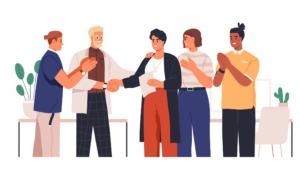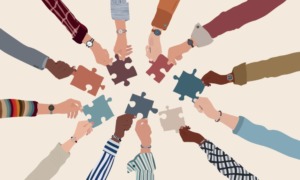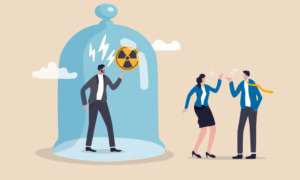In what could be an unprecedented case, an affiliate of Big Brothers Big Sisters of America (BBBSA) has sued another affiliate for trademark infringement, challenging the right of a local youth organization to use the full name of its national parent.
At issue is a move by Big Brothers of Massachusetts Bay to add “Big Sisters” to its name – the kind of change that national headquarters has long advocated among its affiliates, but that stepped on the toes of Big Sister of Greater Boston.
For years, Big Brothers of Massachusetts Bay and Big Sister of Greater Boston peacefully served neighboring and overlapping areas, standing as only a handful of BBBSA affiliates that do not include both genders in their names. But in December 2006 the Massachusetts Bay affiliate added “Big Sisters” to its name, which Big Sister says sowed confusion among donors and cost it money, as some people mistakenly contributed to the double-gendered group instead of to Big Sister.
“The lawsuit between our Boston-based affiliates concerns us,” said Kay Keenan, vice president of marketing and communications for BBBSA, based in Philadelphia. “While there are occasional disputes among affiliates, it has been our experience that shared mission supersedes their differences, and disputes have been negotiated and settled without litigation.”
The roots of the dispute go back to 1977, when Big Brothers of America and Big Sisters International combined to become BBBSA. That set off a gradual wave of name changes at local agencies that had been gender-specific, with some taking far longer than others to go along.
“Over time, most have gone to the Big Brothers Big Sisters name and serve both genders,” BBBSA Marketing Coordinator Jill Godsey said via e-mail. She noted that affiliates in Los Angles and Indianapolis, “two of our other larger markets, made the change in this decade.”
Aside from Big Sister of Greater Boston, she said, “the only gender-specific agencies” among the more than 400 BBBSA affiliates are Big Sisters of Rhode Island and Big Brothers of Rhode Island.
One factor behind the Boston dispute is the aggressive expansion strategies of some BBBSA agencies. (See “Growing Ambitions.”) The Massachusetts Bay affiliate has been quite successful – merging with other BBBSA agencies and expanding its big/little matches from 448 in 1996 to more than 2,000 last year – and the Big Sister affiliate, which serves only girls, might be getting hurt by that growth.
Massachusetts Bay has served both genders for 40 years, but the number of girls has grown significantly in recent years, said Adrian Hancock, vice president of marketing. “Out of more than 3,400 children we have served in the past 12 months, over 600 are girls, of whom nearly 300 are in the immediate Greater Boston area,” Hancock said. He said the agency changed its name “to more accurately reflect what we do today.”
Big Sister of Greater Boston – which reported 2,100 one-on-one matches and more than 2,900 girls last year – immediately saw confusion among its donors, said CEO Deborah Re. The two agencies started talking last spring about how to avoid legal action, she said, with Big Sister asking its sibling agency to revert to its old name and strengthen the partnership between the two organizations.
“We discussed ways we could do more joint recruiting and fundraising and work together, so they would not use ‘Big Sisters’ in their name,” Re said.
The lawsuit was filed in December in the U.S. District Court for Massachusetts. BBBSA and the two local agencies said they know of no other trademark litigation between BBBSA affiliates.
Name changes are often sensitive. Ken Martinet, CEO of Catholic Big Brothers Big Sisters, based in Los Angeles, said his organization added “Sisters” to its name in 2002, but kept “Catholic” because of tradition and the religious orientation of many locals.
The switch to double-gender names often occurs when two single-gender agencies merge, and Martinet noted that “there’s a fear among distinct agencies that whatever population they’re serving would not be served as well in a merged operation.”
“It’s not an easy thing to do,” said Jane Pollock, who was involved with the merger of two BBBSA affiliates in Pennsylvania years ago and is now interim executive director of Big Sisters of Rhode Island. “Particularly for the Big Sister side, they might feel they could get lost in the shuffle, because it’s so much more difficult to service the male population because of finding male mentors, meaning more effort will be put into that side of the business.”
Pollock said Big Sisters of Rhode Island approached Big Brothers of Rhode Island last year to discuss merging, but talks have not begun.






























